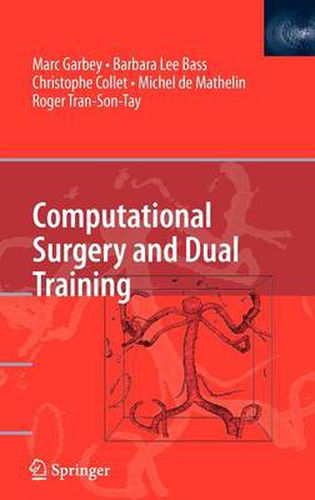Readings Newsletter
Become a Readings Member to make your shopping experience even easier.
Sign in or sign up for free!
You’re not far away from qualifying for FREE standard shipping within Australia
You’ve qualified for FREE standard shipping within Australia
The cart is loading…






The future of surgery is intrinsically linked to the future of computational sciences: the medical act will be computer assisted at every single step, from planning to post-surgery recovery and through the surgical procedure itself. Looking back at the history of surgery, surgery practice has changed drama- cally with the extensive use of revolutionary techniques, such as medical imaging, laparoscopy, endoscopy, sensors and actuators, and robots. This trend is dependent on the use of computer processing, computational method, and virtualization. Computational surgery will not only improve the ef?ciency and quality of surgery, but will also give new access to very complex operations that require extreme precision and minimum intrusion. Such examples are today’s inoperable cancer tumors that have invaded critical tissues or nervous centers. In order for this milestone to be reached quicker and more ef?ciently, surgeons will have to become very familiar with computing methods, such as image analysis, augmented re- ity, and/or robotics. It will be critical for surgeons to assimilate computers in their training, understand how computers work, understand the limitations/advantages of these computer tools, and be able to interpret computer imaging and simulations.
$9.00 standard shipping within Australia
FREE standard shipping within Australia for orders over $100.00
Express & International shipping calculated at checkout
The future of surgery is intrinsically linked to the future of computational sciences: the medical act will be computer assisted at every single step, from planning to post-surgery recovery and through the surgical procedure itself. Looking back at the history of surgery, surgery practice has changed drama- cally with the extensive use of revolutionary techniques, such as medical imaging, laparoscopy, endoscopy, sensors and actuators, and robots. This trend is dependent on the use of computer processing, computational method, and virtualization. Computational surgery will not only improve the ef?ciency and quality of surgery, but will also give new access to very complex operations that require extreme precision and minimum intrusion. Such examples are today’s inoperable cancer tumors that have invaded critical tissues or nervous centers. In order for this milestone to be reached quicker and more ef?ciently, surgeons will have to become very familiar with computing methods, such as image analysis, augmented re- ity, and/or robotics. It will be critical for surgeons to assimilate computers in their training, understand how computers work, understand the limitations/advantages of these computer tools, and be able to interpret computer imaging and simulations.